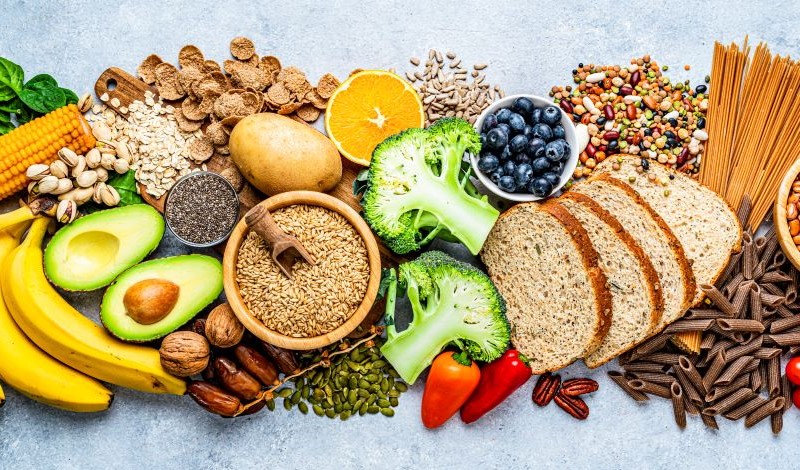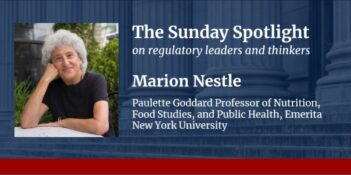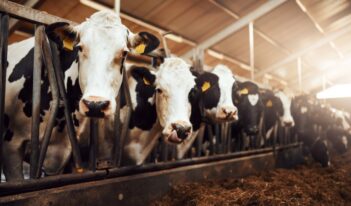
USDA releases a new rule designed to curb organic food crimes.
In 2021, a South Dakota farmer, Kent Duane Anderson, admitted to falsely telling customers that the grains he sold them were organic. Through his fraudulent scheme, Anderson sold his grains at marked-up prices and raked in a profit of almost $35 million.
Anderson’s crime—organic fraud—is becoming “increasingly common.” But the U.S. Department of Agriculture (USDA) hopes that a new regulation which took effect last month will “strengthen oversight and enforcement” of organic standards, preventing fraud of the kind committed by Anderson.
Department officials have touted the new USDA rule as the biggest update to organic regulations since the Organic Foods Production Act of 1990 (OFPA) was passed. According to USDA, the new rule closes oversight gaps, builds consistent certification practices to deter and detect organic fraud, and improves transparency and product traceability.
The rule aims to achieve these goals by expanding USDA’s National Organic Program. It will also require certification of all organic products entering the United States and further certification at subsequent stages along food products’ supply chains.
As supply chains become more global and complex, an organic food product might change hands several times before reaching its ultimate consumer. These transfers can make it difficult for regulators to detect fraud. To combat USDA develops and enforces national standards for organic produce sold in the United States and is responsible for accrediting third-party organizations to certify that entities along the organic supply chain meet these standards.
But according to USDA, a typical supply chain process for organic food products can be quite complex, involving many players such as farmers, brokers, transporters, importers, and supplier—who, under the prior version of the USDA rule, did not need to certify their products or processes as organic.
These gaps in oversight, when combined with the allure of the higher profits organic products fetch, led to the kinds of fraud committed by Anderson and others, USDA claims. Because the prior version of the National Organic Program did not require brokers to obtain organic certification to operate in the organic market, Anderson’s conspirators were able to establish new brokerages to continue selling fraudulently labeled organic goods—even after Anderson was sentenced to federal prison and ordered to pay $15 million in restitution.
The rule now requires brokers intending to sell organic goods to become certified organic processors through a USDA-accredited entity. USDA claims these new measures will enable the agency to detect and prevent fraud, as well as minimize damage in the U.S. organic food market. The rule does carve out exceptions, however, for brokers who only purchase, receive, and distribute products that are already in their finished retail packaging.
In addition, the rule updates requirements for an organic import certificate which contains information about the quantity and origin of organic product being imported into the United States. The prior version of the National Organic Program did not require import certificates for goods from countries that did not have any U.S.-approved means of granting organic verification. The amended rule, however, now mandates that all products “intended to be sold, represented, labeled, or marketed as organic in the United States” must be declared organic to U.S. Customs and Border Protection, regardless of the product’s country of origin.
According to USDA, expanding this requirement will improve the oversight and traceability of imported organic products, and, in turn, should reduce the amount of fraud in the market.
The new rule also implements other changes that strengthen USDA’s ability to enforce organic regulations. These changes include requiring nonretail containers used in the shipping or storage of organic products to be labeled so USDA can verify a product’s organic identity and establishing systematized training requirements for organic certifying agents. The new regulation will also mandate that USDA-regulated certifiers enter information into USDA’s organic integrity database, which will help verify organic operations and products on a larger scale.
Furthermore, the rule allows USDA to initiate enforcement action against entities that operate without proper certification or otherwise violate the amended organics rule.
Some of the new rule’s supporters have stated that the new regulation shows that USDA “fully stands behind the organic brand.” Various organic industry stakeholders, such as the Organic Trade Association, claim that the regulation will have “significant and far-reaching impacts” on the organic sector by helping deter organic fraud and protecting “organic integrity throughout the supply chain.”
But USDA’s new rule has critics, too. These detractors contend that increased oversight and enforcement may pass on costs to both organic producers and consumers. One food scholar claims that the new regulation will mean “higher prices, and higher prices likely mean more incentives to cheat.”
Ultimately, the organic food market in the United States is booming. And as it continues to grow, USDA’s new rule may help prevent fraud in the market from booming too.



